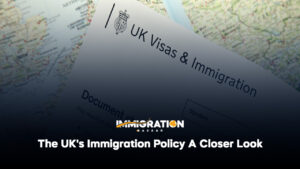Introduction
Destination Canada is set to host a virtual job fair from November 13 to 15, 2024, in collaboration with Immigration, Refugees and Citizenship Canada (IRCC). This event targets bilingual job seekers interested in opportunities within the tourism, hospitality, and culinary sectors across Canada, excluding Quebec. The initiative reflects Canada’s commitment to attracting international talent to fill labor shortages in key industries while also supporting bilingual candidates, a critical factor for many employers in these fields.
-
Purpose of the Job Fair
1.1 Addressing Labor Shortages
Canada’s tourism and hospitality industries have faced significant labor shortages, exacerbated by the COVID-19 pandemic. As businesses reopen and recover, the need for skilled workers is more pronounced than ever. This job fair aims to connect international candidates with Canadian employers actively seeking to fill positions.
1.2 Promoting Bilingualism
Bilingualism is a vital asset in Canada, especially in sectors that engage with diverse clientele. By focusing on bilingual candidates, the job fair aims to enhance communication and service delivery in both official languages: English and French. This aligns with Canada’s multicultural ethos and the importance placed on linguistic duality.
1.3 Fostering International Connections
The virtual format of the job fair allows employers to reach a wider pool of talent globally, enabling them to connect with individuals from various countries. This approach not only helps address immediate labor needs but also fosters long-term international relationships that can benefit Canada’s economy.
-
Key Details of the Event
2.1 Dates and Registration
The job fair will take place over three days, from November 13 to 15, 2024. Job seekers can register between September 23 and October 27, 2024. Early registration is encouraged, as spaces may be limited and certain positions may be in high demand.
2.2 Participating Employers
A diverse range of employers from across Canada will participate, focusing on sectors critical to the country’s economy. Some of the participating sectors include:
- Tourism: Hotels, travel agencies, and tour operators seeking skilled staff to enhance visitor experiences.
- Hospitality: Restaurants, cafes, and catering services looking for chefs, servers, and management staff.
- Culinary: Opportunities for culinary professionals, including cooks and pastry chefs, to showcase their skills and secure employment.
2.3 Application Process
During the virtual job fair, participants will have the opportunity to connect with potential employers, submit their applications, and engage in discussions about available roles. Job seekers are encouraged to prepare their resumes and practice their interviewing skills in advance.
2.4 Networking Opportunities
The fair will provide unique networking opportunities, allowing job seekers to interact with industry professionals and gain insights into the Canadian job market. Participants can also attend workshops on resume writing and interview techniques, tailored specifically for the Canadian employment context.
-
Importance of Bilingualism in Canada
3.1 Cultural Significance
Bilingualism is not just a policy in Canada; it is a reflection of the country’s cultural diversity. French and English are the two official languages, and many regions in Canada, especially in the Atlantic provinces, have significant bilingual populations. This bilingual nature enhances cultural exchanges and fosters inclusivity.
3.2 Economic Advantages
Employers value bilingual employees as they can cater to a broader range of customers and clients. In industries like tourism and hospitality, where customer interaction is frequent, being bilingual can significantly enhance service quality and customer satisfaction. This also positions bilingual workers as valuable assets in multinational companies.
3.3 Enhanced Career Prospects
Bilingual candidates often have better job prospects and can command higher salaries compared to their monolingual counterparts. Many Canadian employers prioritize bilingualism, especially in roles involving customer service, management, and public relations.
-
Preparing for the Job Fair
4.1 Researching Employers
Prior to the fair, job seekers should research participating employers to understand their values, culture, and the specific roles they are hiring for. This preparation will enable candidates to tailor their applications and conversations during the event.
4.2 Crafting an Impressive Resume
Creating a strong resume that highlights relevant experience, skills, and bilingual capabilities is crucial. Job seekers should focus on accomplishments and quantify their contributions where possible. Tailoring resumes for specific roles can also enhance chances of attracting employer interest.
4.3 Practicing Interview Skills
Candidates should practice common interview questions, particularly those that may arise in the hospitality and tourism sectors. Being prepared to discuss previous experiences and how they relate to the job can help candidates stand out during interviews.
4.4 Preparing Questions
Having questions ready to ask employers can demonstrate interest and engagement. Candidates should consider inquiring about company culture, training opportunities, and career advancement within the organization.
-
The Impact of COVID-19 on the Job Market
5.1 Recovery in the Tourism and Hospitality Sectors
The pandemic has significantly impacted Canada’s tourism and hospitality sectors, leading to widespread job losses and business closures. However, as the economy gradually reopens, there is a growing need for skilled workers to support recovery efforts.
5.2 Government Support
The Canadian government has introduced various support measures to assist businesses in these sectors, including wage subsidies and training programs. These initiatives aim to help employers rebuild their workforce and provide job seekers with opportunities for employment.
5.3 Emphasis on Health and Safety
As the sectors recover, there is an increased focus on health and safety protocols. Employers are looking for candidates who understand and can implement these measures, making it essential for job seekers to be familiar with the latest health guidelines.
-
Conclusion
The upcoming virtual job fair hosted by Destination Canada represents an excellent opportunity for bilingual candidates to connect with employers in the tourism, hospitality, and culinary sectors. As Canada continues to recover from the impacts of the COVID-19 pandemic, attracting international talent is crucial for addressing labor shortages and ensuring the success of these industries.
By participating in this job fair, job seekers can take proactive steps toward securing meaningful employment while contributing to Canada’s economic growth. As the country embraces diversity and inclusivity, bilingual individuals will play a vital role in shaping the future of Canada’s workforce.







